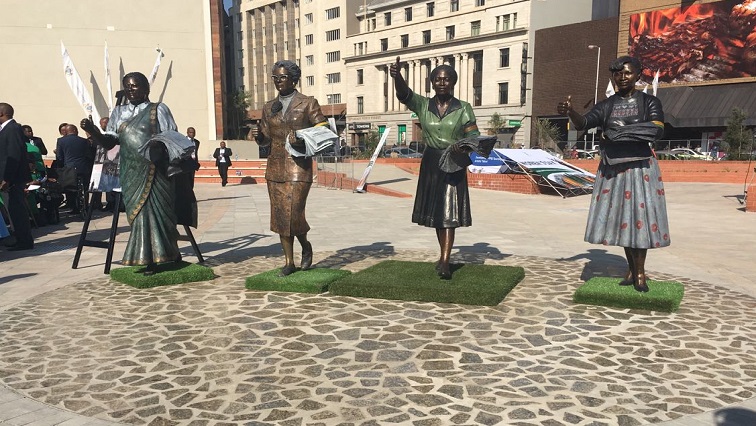South Africa celebrates Women’s Day on Tuesday, August 9th. This is in remembrance of the almost 20 000 women who marched to the Union Buildings in protest of Pass Laws 66 years ago this year.
The Pass Laws, enacted by the apartheid system, were aimed at enforcing segregation between black and white people in the country. Black South Africans’ movement was restricted in urban areas, thereby limiting their work opportunities.
The Natives Act 67 of 1952 required black men to carry passes wherever they went. The extension of the laws to black women resulted in the 1956 women’s march.
The march brought together women of various races and backgrounds in an effort to repel the laws.
Led by the likes of Rahima Moosa, Lilian Ngoyi, Helen Joseph, and Sophia Williams the women submitted petitions to then Prime Minister Johannes Strijdom.
In the video below anti-apartheid activist Sophie Williams De Bruyne calls for this generation of women to continue to fight for their rights:
Challenges facing women
This year’s theme is “Women’s Socio-Economic Rights and Empowerment: Building Back Better for Women’s Improved Resilience.”
The commemoration comes at a time when South Africa is still struggling to recover from the effects of the coronavirus pandemic.
Women continue to carry the brunt of unemployment.
According to Statistics South Africa, the unemployment rate among women in the fourth quarter of 2021 was 38.2% compared to 32.8% among men. The first quarter of 2022 saw the unemployment rate among women drop to 36.4%.
Gender-based violence is another challenge South African women are facing. Releasing the crime figures for the first three months of the year, Minister Bheki Cele announced a 22.2% increase in murder.
“1 107 more people were killed in South Africa between January and March compared to the same period in 2021. Out of the 6 083 people killed in the country, 898 of them were women and 306 were children under the age of 17 years,” he said.
The country also recorded a 13.7% increase in sexual offences with the exception of contact sexual offences.
“The first three months of this year, 10 818 people were raped in South Africa. Almost half of the cases, a staggering 4 653 rapes took place at the home of the rape victim or the home of the rapist.”
Portfolio Committee presents the quarterly crime statistics in the National Assembly:
Women’s Day is also aimed at reflecting on how far South Africa has come in the advancement of women.
President Cyril Ramaphosa is expected to reflect on this when he delivers the keynote address at the national event in Richmond, KwaZulu-Natal.
The event will take place at the Silahla Sports Field in Richmond in the uMngungundlovu district municipality.


